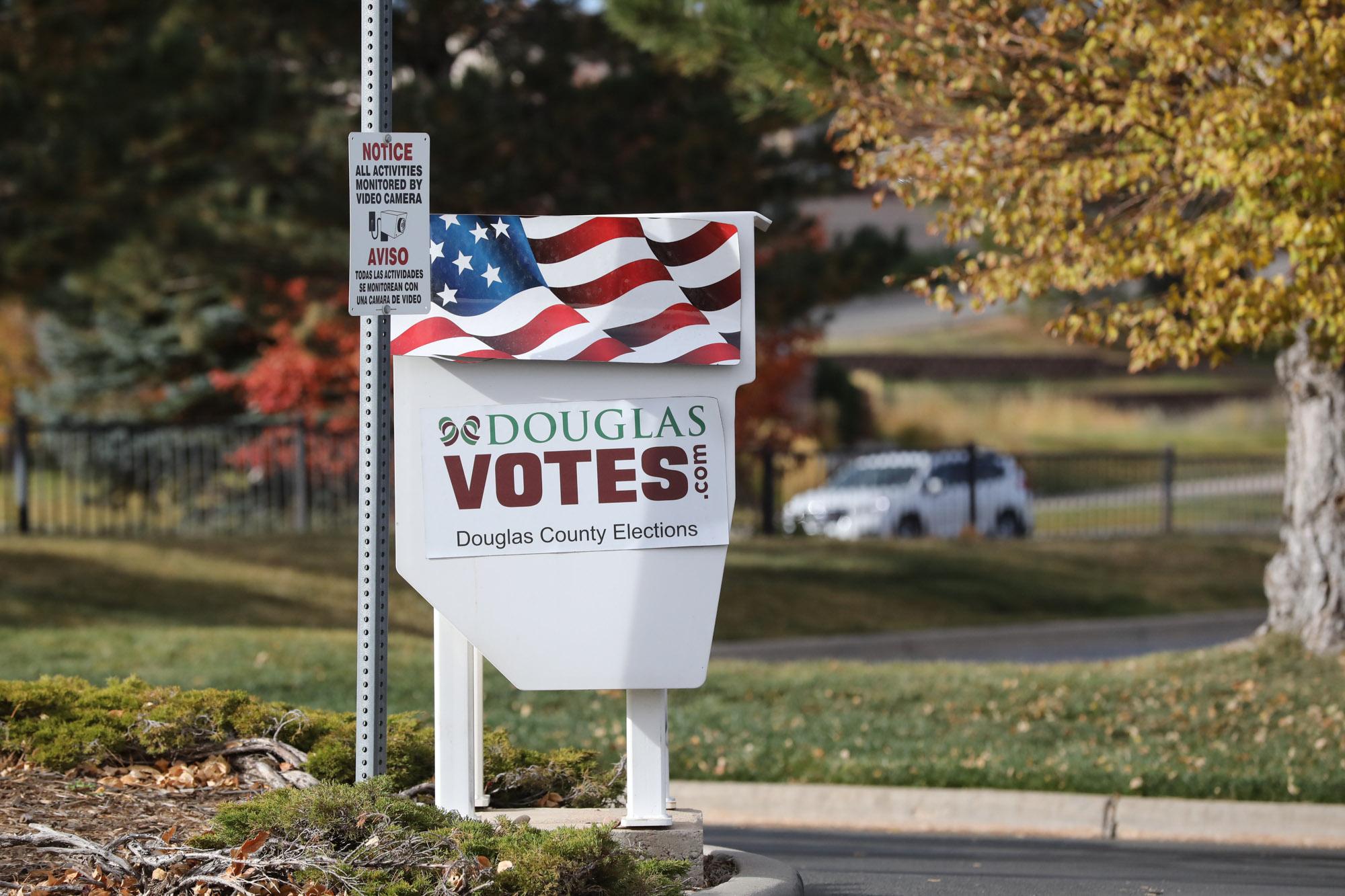
Update February 22, 11:30pm - This story has been updated with a response from clerk Schroeder's lawyer.
Colorado’s Secretary of State is going to court against a second Republican county clerk over the question of what local election officials are legally allowed to do with their voting equipment.
On Thursday, Secretary Jena Griswold announced she is suing clerk Dallas Schroeder in an attempt to seize two copies of the county’s election equipment hard drives he made last year, and to force him to answer more questions.
Griswold is already engaged in a legal case against Mesa County Clerk Tina Peters over her involvement in the copying of that county’s election hard drives. Griswold argues Peters jeopardized election security and should be barred from overseeing this year’s vote. A third inquiry involving the Douglas County clerk was closed last week after he answered the state’s questions.
Multiple lawsuits
The situation with Clerk Schroeder began with a lawsuit against Griswold. Among many things, the suit, which Schroeder is party to, argues that post-election software updates to the state’s voting equipment destroy ‘election records’ that clerks are required to maintain.
The updates, referred to as a ‘trusted build’ process, have become a target of conspiracy theorists pushing false claims that the 2020 presidential election was stolen. They claim Denver-based Dominion Voting Systems used the updates to hide evidence of wrongdoing. Election software experts say data from Mesa County’s hard drive shows no evidence of that.
An affidavit in the lawsuit against Griswold revealed that the clerk made a full image backup of his county’s hard drives the day before the trusted build. In response to questions from the Secretary of State, Schroeder elaborated that he made the copy with only authorized employees of his office present, but had subsequently given it, and a second copy, to two outside attorneys — only one of whom he has identified — for safekeeping.
Since that point, the state and Schroeder have been in a standoff.
Griswold’s office is demanding Schroder prove that the attorneys are allowed, under Colorado election law, to possess the hard drives, and if not, to collect the drives from them; to provide evidence that the attorneys never accessed any of the information on the drives; and to turn the drives over to the state for inspection.
In response, Schroeder argues that Griswold has exceeded her authority in this case, and that the hard drive copies are official election records, which his office is required to maintain and which should be available to the public under Colorado’s open records law.
He has also said that he’s keeping the drives exact locations secret because he fears the Secretary of State intends to seize them, claiming that her office took control of Mesa County’s election equipment during the investigation into that office’s security breach. The Secretary of State decertified Mesa’s equipment after determining that leaked information from the hard drives had compromised their security.
In an emailed statement, Schroeder's lawyer, John Case, defended the clerk's authority to make and preserve copies of the voting hard drives and said the goal is to force the state to explain how the tabulation machines work.
"Computerized voting systems interpret and tabulate ballots within “black boxes” designed by private companies using complex software understood only by those private companies," Case asserted. "Voting should be in secret, but counting the votes should be transparent."
Colorado requires every county to do a hand audit its ballots after each election to ensure the votes on paper match how they were recorded by the tabulation machines. After the 2020 election, Elbert County's required audit of voted ballots found no discrepancies (the same was true of Colorado's other 63 counties).
Schroeder is just the latest case in a growing rift between Colorado’s Democratic Secretary of State (who oversees elections statewide) and a handful of Republican clerks (who are in charge of them locally) over who has jurisdiction over information buried deep in the machines used to handle the vote.








